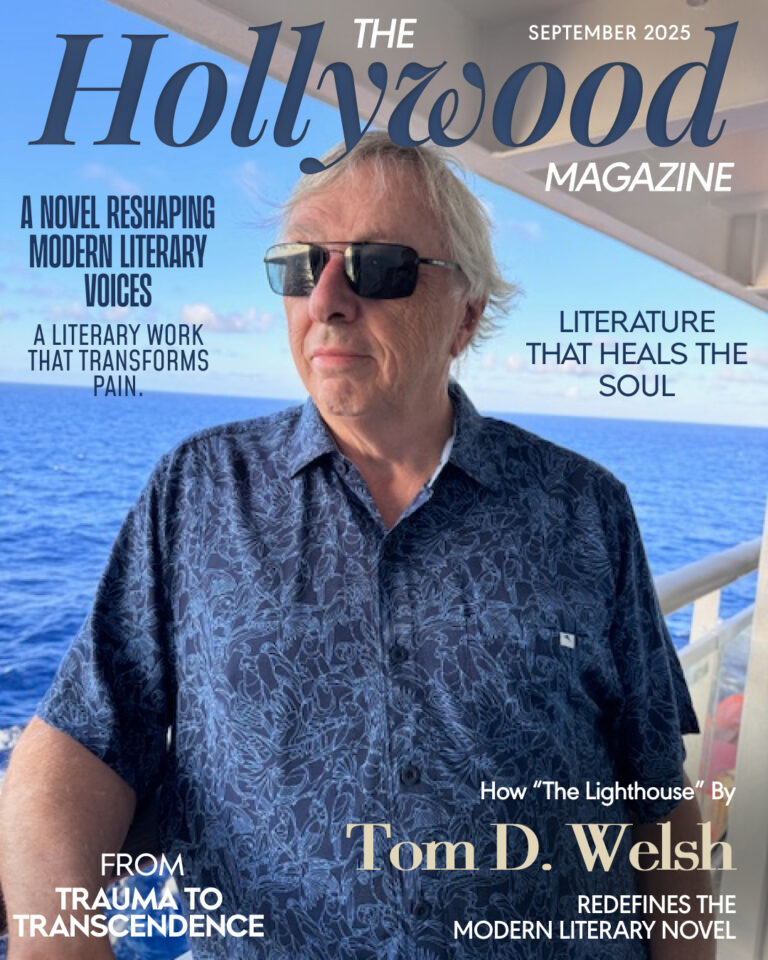From Trauma to Transcendence: How “The Lighthouse” by Tom D. Welsh Redefines the Modern Literary Novel

Every few years, a novel surface that doesn’t just tell a story but summons something deeper. The Lighthouse, a genre-defying work by Canadian-American author Tom D. Welsh, is exactly that. An emotionally rich, mystically charged epic that threads together trauma, time, and transcendence. It offers a striking combination of personal reflection, psychological realism, and metaphysical inquiry, setting it apart as a literary novel with rare substance.
Rooted in trauma and spiritual inquiry, The Lighthouse explores how the weight of the past intersects with the unseen forces that shape our choices. Set against the rugged coast of Maine, with the Marshall Point Lighthouse serving as a central symbol, the novel introduces two distinct yet thematically connected lives. One belongs to a man trying to uncover his purpose after a mysterious inheritance. The other follows a combat veteran searching for peace after loss. What connects their paths is not immediately obvious, but it becomes clear that both are being drawn to something much larger than themselves.
A Dual Narrative with Unmistakable Weight
The story is anchored by two central characters. Henry Strong is a quiet, conflicted man who lost his parents at sea when he was young. Raised by the Chamberlains in Maine, he grew up in a stable home, only to later betray the very people who nurtured him. When he receives a letter from a law office revealing that he is the sole heir to the Chamberlains’ estate, Henry returns to his past to make sense of what he has lost and what he has inherited. His journey leads him deep into a hidden world of guardianship, ritual, and ancient responsibility.
On the other side is Frank Wilson, a former Marine who walks away from everything after watching his best friend die in a combat operation. Accompanied only by a stray dog named Bud, Frank sets out on a long walk from New Jersey to the northern tip of Maine. He carries no plan, only guilt and unanswered questions. Each step brings him closer to a confrontation with the person he has become.
Though Henry and Frank never meet on the page, their stories mirror each other. Both are guided by a quiet sense that something is calling them. Both carry burdens they do not fully understand. And both are drawn to the same mysterious place: Marshall Point Lighthouse, where once a year, a strange blue light appears without warning.
A Story Told with Poise and Purpose
What distinguishes The Lighthouse is not a reliance on shock or spectacle. Instead, it is the careful attention to emotional detail. Welsh’s writing is patient, restrained, and deeply personal. The chapters alternate between past and present, between memory and discovery, creating a rhythm that pulls the reader forward.
Henry’s investigation into the Chamberlain legacy introduces the Swash, a secret order that has preserved sacred knowledge since the time of the Templars. The details are never overplayed. The story never leans into fantasy, choosing instead to remain grounded in the real-world consequences of hidden truths and emotional scars.
Frank’s sections are no less powerful. His walk through America is slow and painful. Each town, each interaction, becomes a step closer to something he can barely articulate. The presence of Bud, his silent companion, offers comfort without explanation.
The novel refuses to rush. It allows silence to speak. It respects the reader’s ability to sit with uncertainty.
Market Relevance Without Compromise
Though The Lighthouse is clearly literary in tone, its potential for broader impact is unmistakable. Its themes—post-traumatic healing, spiritual inheritance, moral reckoning—align with contemporary conversations about wellness, identity, and purpose. The pacing, tone, and structure suggest a novel that could easily be adapted for film or television without losing its depth.
The characters are fully formed, the setting richly drawn, and the symbolism both subtle and satisfying. The annual blue light that appears at the lighthouse is not just a plot device. It represents something larger: a moment of judgment, a possible redemption, a call to clarity. It lingers in the reader’s mind long after the final page.
A Voice That Commands Attention
Tom D. Welsh has created more than a novel. His writing carries the soul of someone who has spent years listening, watching, and asking hard questions. There is no rush to impress. Only a steady desire to tell the truth, however difficult it may be.
In a crowded marketplace, The Lighthouse stands out because it does not try to compete. It offers something different, something thoughtful, measured, and meaningful.
For readers who value depth over distraction and storytelling over spectacle, this novel will not disappoint. It is a rare example of fiction that honors silence, respects memory, and believes in the possibility of light, no matter how long the journey through darkness may be.
Connect with Tom Welsh: Amazon | Website | Facebook | LinkedIn




















